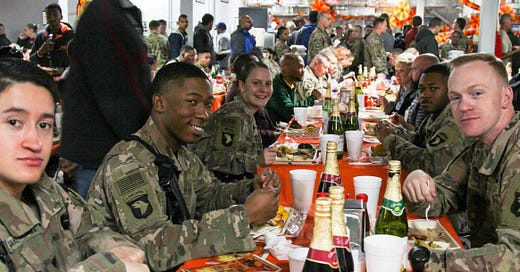Thanksgiving
Since September 11, 2001, there has not been a single terrorist attack on American soil.
by Rod D. Martin
November 24, 2004
As of this writing, on the heels of their stunning Fallujah victory, U.S. forces in Iraq have launched Operation Plymouth Rock to clean out terrorist and Saddamite strongholds throughout the Sunni Triangle.
The operation's name is of course a reference to our first Thanksgiving holiday.
From the Mayflower Compact to the Bible-based notion of rule of law, the Pilgrims' landing at Plymouth Rock in 1620 sowed the seeds for our modern American democracy. The hope is that Operation Plymouth Rock and other operations will give Iraqis room to chart a similar course in the direction of representative government and liberty.
If they do, that will be yet another milestone in the spread of freedom and another blessing for which to be thankful.
This Thanksgiving, we indeed have plenty for which to be grateful.
For starters, since September 11, 2001, there has not been a single terrorist attack on American soil.
As of September 12, who would have predicted that? Nobody.
B…




